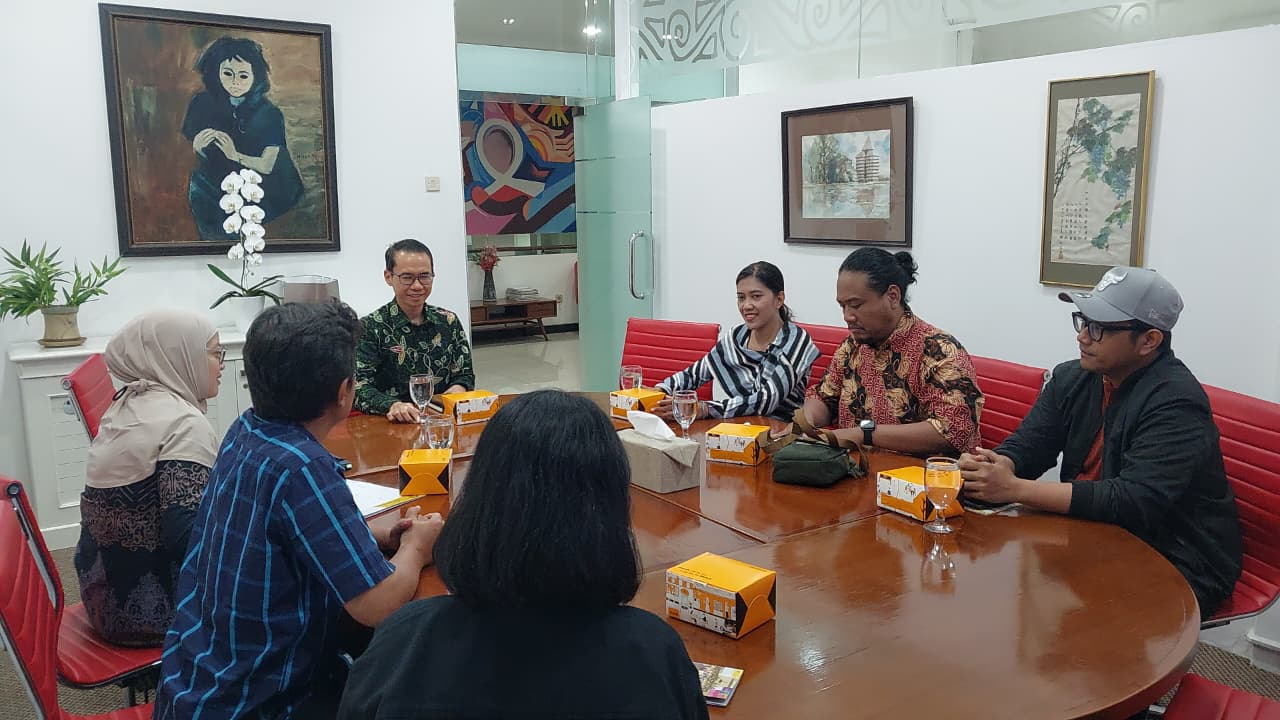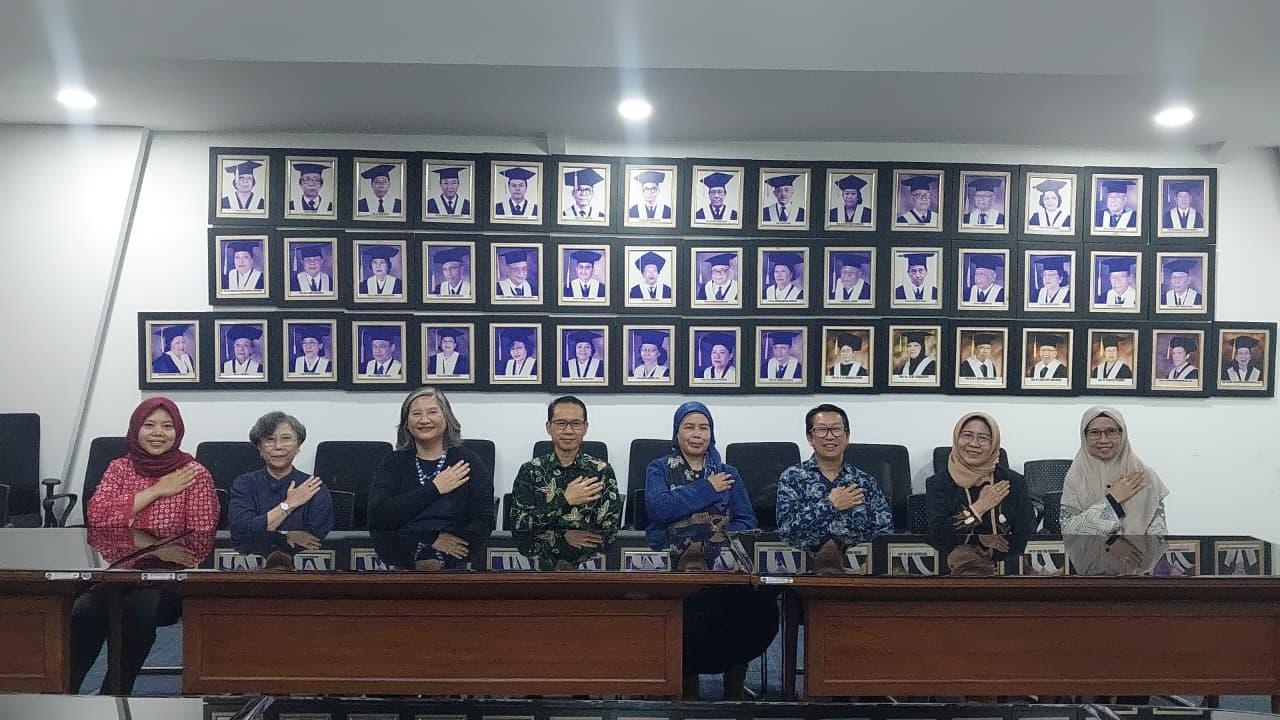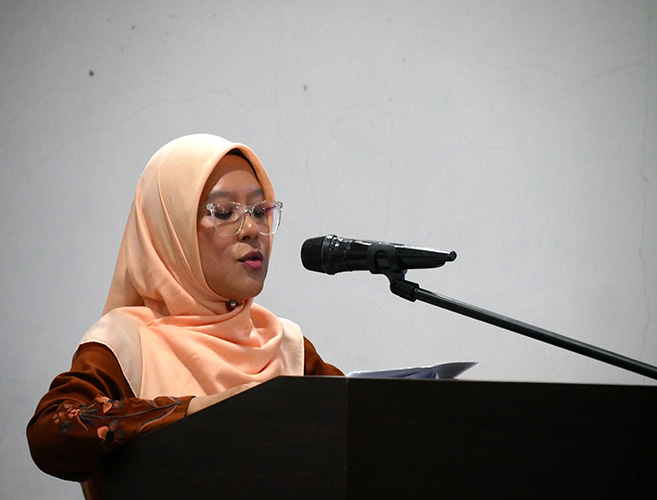The Faculty of Humanities, Universitas Indonesia (FIB UI), in collaboration with the Taipei Economic and Trade Office (TETO) in Jakarta, successfully hosted the International Hybrid Symposium themed “Transnationalism, Digital Transformations, and Migrant Identities: Navigating Religious Practices and Cultural Belonging.” The event marked the 3-year FIB UI–TETO Project and served as a significant milestone in advancing joint research and academic exchange between Indonesia and Taiwan. The symposium attracted 108 in-person participants and 25 online attendees, and featured three plenary sessions and two parallel sessions.
Opening the symposium, Acting Dean of FIB UI, Dr. Untung Yuwono, S.S., reflected on the evolution of the partnership. In the first two years of cooperation between TETO and the Faculty of Humanities, the focus was on teaching and learning. FIB UI and TETO mapped urgent issues through a series of meetings and webinars, as well as collecting and analyzing data. Now, in the third year, the emphasis is on conducting joint research on ‘Digital Culture Flow in Taiwan and Indonesia. FIB UI presents findings to a wider audience through this symposium and is preparing to publish them.
Representing TETO, Grace Ou, Director of the Education Division, expressed appreciation for the collaboration and its role in strengthening bilateral academic ties. Dr. Sisilia Setiawati Halimi, as Symposium Chairperson, also extended her gratitude to TETO for enabling FIB UI lecturers to conduct joint research with Taiwanese scholars. This study involved Indonesian migrant workers in Taiwan and explored diverse perspectives on religious practices and cultural belonging in a transnational context. The research team is delighted to publish a research article stemming from this collaboration soon.
The first plenary session featured Dr. Thomas Syuan-yuan Chiou from National Chengchi University, who delivered a presentation titled “Faith in Transition: Islamic Schooling, Border-Crossing Muslim Motherhood, and the Pursuit for Muslim Children’s Educational Autonomy in Taiwan.” Dr. Chiou explored how Muslim mothers in Taiwan navigate the country’s secular culture while preserving their religious identity, ensuring that their children receive an Islamic education amidst a predominantly non-Muslim environment.
In the second plenary session, Dr. Rostineu from Universitas Indonesia presented “Digital Media and Religious Engagement: Framing the Religious Identities and Expressions of Indonesian Female Migrant Workers in Taiwan.” She highlighted the pivotal role of digital platforms in helping Indonesian Muslim women, who form the majority of Indonesia’s migrant workforce in Taiwan, maintain their religious values, foster community security, and contribute positively to Taiwanese society.
The third plenary session was delivered by Annisa R. Beta, Ph.D. from University of Melbourne, under the title “Pursuing Knowledge While Pious: Epistemic Positioning and Mobility of Indonesian Muslim Women Scholars.” Dr. Beta examined the journeys of highly skilled Indonesian Muslim women pursuing education abroad, focusing on how they balance intellectual aspirations with their religious upbringing, modesty, and gender norms that shape their identities.
The event concluded with an engaging panel discussion moderated by Prof. Manneke Budiman (Universitas Indonesia), bringing together all three plenary speakers. The discussion delved deeper into the intersections of religious belief, cultural adaptation, and migrant identity in secular societies, offering rich perspectives on how individuals and communities navigate these complex issues.
Closing the event, Dr. Rahadjeng Pulungsari Hadi, the Head of the TETO Taiwan Studies Team, emphasized that the symposium was a testament to the power of international cooperation and academic exchange. Through this symposium, FIB UI and TETO reaffirmed their commitment to fostering cross-border scholarly collaboration and contributing to a deeper understanding of the complexities of migration, religion, and cultural belonging in the digital era.




